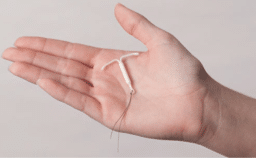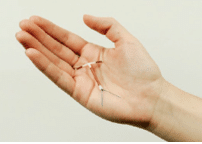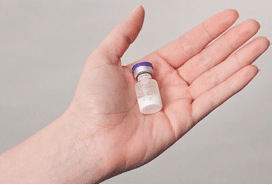Understanding contraception and finding the best contraceptive method for you is an important way to look after your sexual and reproductive health.
We asked Family Planning Australia to share their expertise on contraception and preventing unplanned pregnancy. Family Planning Australia is a trusted not-for-profit organisation providing reproductive and sexual health information and clinical services in New South Wales.
If you have recently moved to Australia from overseas, you likely have a lot of things to think about. Something that you might not have thought about yet is contraception. It’s important to know about contraception if you are thinking about having sex or are already having sex. Not everyone will need to think about contraception though, as not all types of sex can result in pregnancy.
If you haven’t heard of it before, contraception is something people can use when they want to have sex with a partner, but do not want to become pregnant or have a baby. Some types of contraception also prevent sexually transmissible infections (STIs), but not all types of contraception prevent STIs.
There are many methods of contraception that work in different ways. It’s important to find the one that suits you best.
The contraception options available in Australia might be different to other countries. Here are some options that you can get in New South Wales.





The fertility awareness method is when a person monitors their period cycle every day to see when they are most fertile. This can also include monitoring and recording changes to the cervix, cervical mucus and basal body temperature.
A person would need to avoid having sex during the fertile time to reduce their chances of becoming pregnant.
Barrier methods when used consistently and correctly stop body fluids from being passed from one person to another during sex. Condoms are a barrier method that offers protection from both unplanned pregnancy and STIs like chlamydia and gonorrhoea. Condoms come in different shapes, sizes, textures, and flavours. A new condom is needed every time you have sex.
Some places give out condoms free to anyone aged under 30 years old in NSW. Check out https://www.freedomcondom.org.au/ to find where you can get condoms for free!
You can find out more about safe sex and condoms on the Hub.
There are lots of other things to think about when you choose contraception. Not all contraceptive methods work the same way, and most have benefits and some downsides. That’s why it’s important to consider all the types available and pick one that best suits you and your partner’s health and lifestyle needs. Some things to think about are:
There are lots of different types of contraception, but no method is ever 100% effective. Methods which don’t mean you have to remember to do something on a regular basis, such as an implant or IUD, are more effective than pills or condoms which can easily be forgotten or not used properly.
With some contraception like the contraceptive implant or IUD, you need a procedure to put these in your body. If you’re not comfortable having the procedure, these methods might not be the right ones for you. With other contraception like the contraceptive pill, you need to remember to take it every day at the same time. This might easier or more difficult for some people.
Some people get side effects when using contraception and some people do not. Talk to your doctor about possible side effects and to find the best option for you. You should also talk to your doctor if you are concerned about side effects that you are currently experiencing.
In Australia, contraception comes with different costs. Some have a higher cost at first, like the IUD or contraceptive implant but are cost effective in the long term because they last a long time. Others, like the contraceptive pill, are cheaper in the beginning but mean you have to purchase a new pack every 2-4 months. Australian citizens and permanent residents with a Medicare card or healthcare insurance, might have some or all the costs covered. International students with Overseas Student Health Cover (OSHC) will need to check their member guide or ask their health fund about the cost of contraception methods. Find out more here.
You will need to tell your doctor about any medication that you take or if you have any health issues. This may affect your choice of contraception.
Barrier methods such as condoms used on their own or with another type of contraception is the best way to stop the spread of STIs and prevent unplanned pregnancy. You can visit the Hub if you want to know more about STIs.
Unprotected sex is when contraception isn’t used, the condom breaks, or you forget to take your contraceptive pill. If this happens, you can take the emergency contraceptive pill (ECP) to prevent an unplanned pregnancy.
The ECP, also called the “morning after pill” or “plan B” is a single pill taken after unprotected sex to prevent an unplanned pregnancy. You can get the ECP at the chemist without a prescription. Read all about the ECP on the Family Planning Australia website.
You can:
Find out more information about safe sex and contraception on the International Student Health Hub Online Learning Modules.
If you want to know more about contraception and how it works, you can read the Family Planning Australia factsheet on contraception.